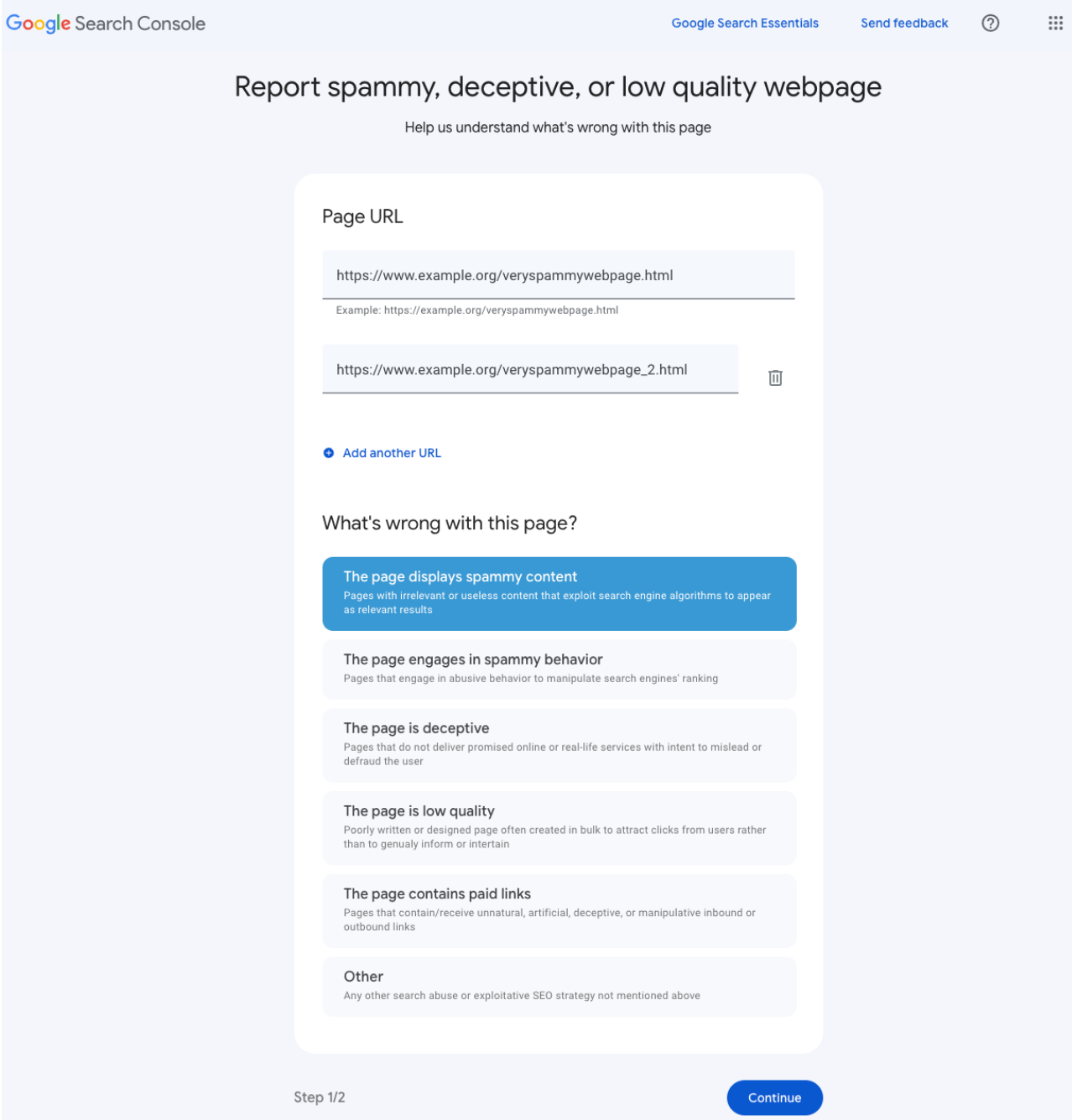Google has released a form to help us submit spammy, deceptive, and low quality web pages. You can even bulk submit up to 5 URLs at a time that violate the same Google policies. Google’s post explains that it’s not just about spam. They say that “Now, you can report spam, paid links, malicious behavior, low quality, and other search quality issues, all in one improved form.”
Google wants you to help them reference the particular spam policy when submitting the form:
“We want to receive actionable feedback to improve our algorithms. Therefore, we are adding granularity to our feedback form: you can now choose a category and a subcategory of the issue you are reporting. While you can only select one main problem category per submission, you’ll be able to submit multiple issue types within that category in the next step.
To help you select the right category, our form links to a help page with an explanation of different quality issues, also referenced in our Spam policies. If you believe the page you are reporting has many issues from different categories at once, you can resubmit the form reporting the same page and selecting different categories. However, our system will disregard identical reports submitted by the same user to prevent spam.”
The form itself, located at https://search.google.com/search-console/report-spam, is actually a part of Google Search Console. Because of this, Google will know who submitted the report. I don’t believe there is any anonymous way to submit a report, except for using some sort of Google Account that does not tie you back to you or your website. In other words, if you don’t want Google to know that you’re submitting reports about your competitors, then don’t log into your Google Account that is tied to verified websites–Google would know the websites verified in your account and that your submitting the report. And, it goes without saying, but I must say it: don’t use this form to submit pages on your own website. But then again, you might actually cause Google to crawl the page that you submit there!
When submitting the report you must pick one of a few options to help “classify” the report:
- The page displays spammy content – Pages with irrelevant or useless content that exploit search engine algorithms to appear as relevant results
- The page engages in spammy behavior – Pages that engage in abusive behavior to manipulate search engines’ ranking
- The page is deceptive – Pages that do not deliver promised online or real-life services with intent to mislead or defraud the user
- The page is low quality – Poorly written or designed page often created in bulk to attract clicks from users rather than to genualy inform or intertain
- The page contains paid links – Pages that contain/receive unnatural, artificial, deceptive, or manipulative inbound or outbound links
- Other – Any other search abuse or exploitative SEO strategy not mentioned above
What I suspect is that Google may take these reports and feed them into a new “system” so to speak, and have their automated system filter out the reports somehow. Then, most likely, those systems would either deal with the reported issue (in an automated fashion if they can), or then flag the issue and ask a human review it. They’ve said that manual actions (Google penalties) are manually reviewed by a human when they’re placed on a website, so it’s quite possible (I’m speculating here) that somehow the data from these reports will make into another system as I’m suggesting.
What Google ends up doing with all of this data remains to be seen, but I believe it’s a start to helping Google re-evaluate pages that people think are spammy, deceptive, and low quality.
